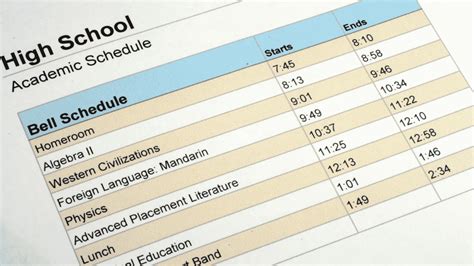Reclassifying in high school as a junior is a significant decision that can have long-lasting implications for your academic and athletic career. Before making this choice, it is crucial to carefully consider the potential benefits and drawbacks.

Eligibility Requirements
To be eligible for reclassification, you must typically meet the following criteria:
- Academically advanced and performing at a high level in your current grade
- Demonstrating maturity and independence beyond your peers
- Having a strong athletic record and the potential to compete at a higher level
Benefits of Reclassifying
- Accelerated Academic Path: Reclassifying allows you to take on more challenging coursework sooner, potentially graduating early and freeing up time for other pursuits.
- Enhanced Athletic Opportunities: By competing against older students, you can showcase your skills and increase your visibility to college scouts and recruiters.
- Emotional and Intellectual Growth: Stepping outside of your comfort zone can foster growth and development in various areas of your life.
Drawbacks of Reclassifying
- Academic Pressure: Reclassified juniors may experience increased academic workload and pressure to succeed.
- Social Adjustment: Joining a higher grade can lead to social challenges, as you may not have as many friends in your new class.
- Athletic Competition: The level of competition in higher grades can be significantly more intense, potentially impacting your playing time and performance.
Procedure for Reclassification
The process for reclassification varies by school district and state. Generally, it involves:
- Requesting Approval: Contact your school counselor and request a reclassification evaluation.
- Submitting Documentation: Provide evidence of your academic performance, maturity, and athletic ability.
- Evaluation Committee Review: A committee will review your request and make a decision based on the established criteria.
Factors to Consider
When deciding whether to reclassify, consider the following factors:
- Your Academic Readiness: Are you prepared for the rigor of higher-level coursework?
- Your Athletic Potential: Are you confident in your ability to compete at a higher level?
- Your Emotional Maturity: Are you prepared to handle the social and academic challenges of being a reclassified junior?
- Your Long-Term Goals: How does reclassification align with your academic and athletic aspirations?
Alternatives to Reclassification
If reclassification is not the right fit for you, consider these alternatives:
- Academic Enrichment: Pursue extracurricular activities or online courses to supplement your current academic program.
- Club or Travel Sports: Participate in competitive sports outside of your school to gain experience against older opponents.
- Summer Programs: Attend academic or athletic programs during the summer to enhance your skills and knowledge.
Conclusion
Reclassifying in high school as a junior can be a transformative experience with potential benefits and drawbacks. By carefully considering the eligibility requirements, potential impacts, and alternatives, you can make informed decisions that align with your academic and athletic goals.
